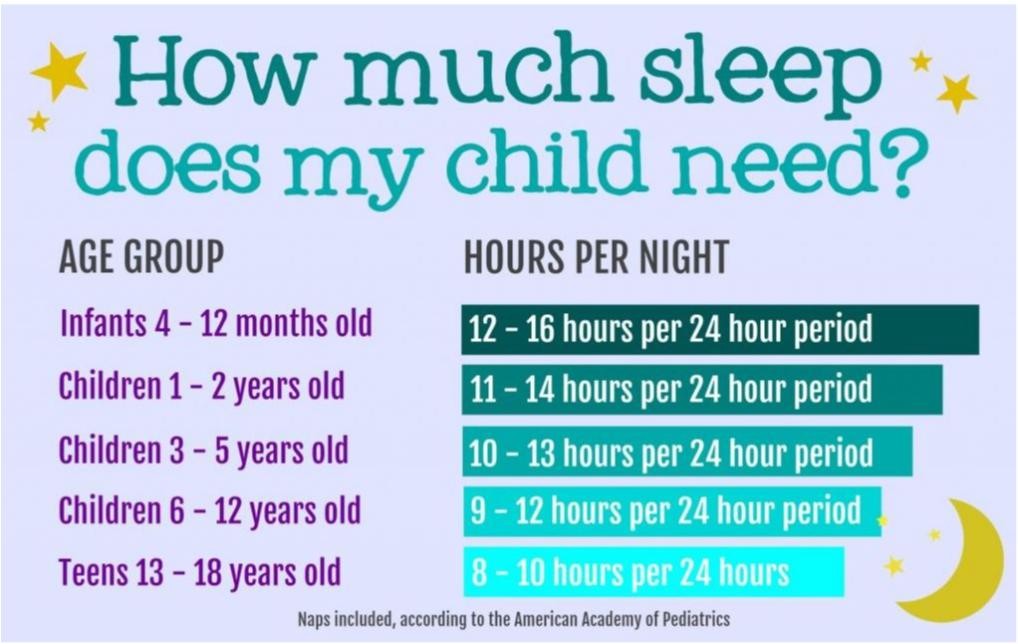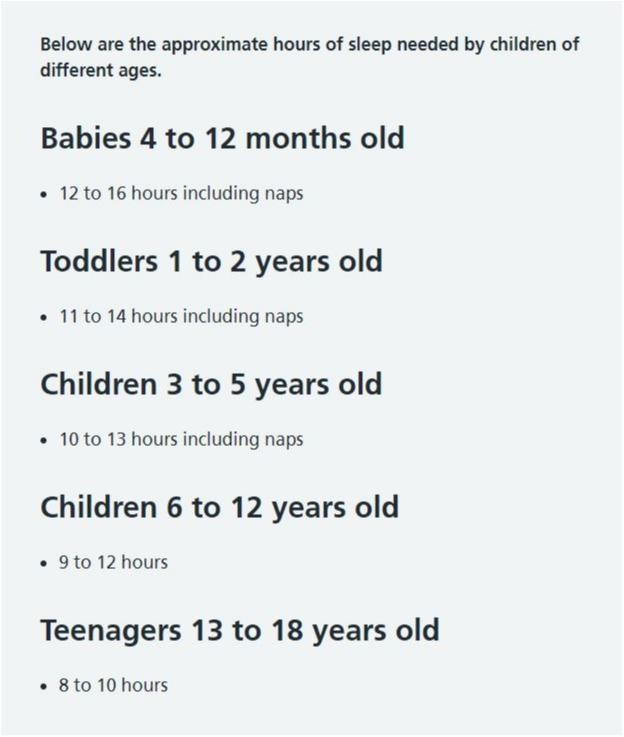Good sleep is important for your child's physical and mental wellbeing.
A relaxing bedtime routine is an important way to help your child get a good night's sleep.
Know how much sleep your child needs
The amount of sleep your child needs changes as they get older.
A 5-year-old needs about 11 hours a night, for example, while a 9-year-old needs roughly 10 hours.
Your child's bedroom
Your child's bedroom should ideally be dark, quiet and tidy. It should be well ventilated and kept at a temperature of about 16 to 20C.
Fit some thick curtains to block out any daylight. If there's noise outside, consider investing in double glazing or, for a cheaper option, offer your child earplugs.
Get help with sleep problems
If you've tried these tips but your child keeps having problems getting to sleep or sleeping through the night, you may feel you want more support.
You can speak to a GP or health visitor to begin with. They may refer you to a child psychologist or another expert.
If your child will not go to sleep without you
This technique can help toddlers (over 12 months) or older children get used to going to sleep without you in the room.
It can also be used whenever your child wakes in the middle of the night.
Be prepared for your child to take a long time to settle when you first start.
You can use strokes or pats instead of kisses if your child sleeps in a cot and you cannot reach them to give them a kiss.
- Follow a regular calming bedtime routine.
- Put your child to bed when they're drowsy but awake, then kiss them goodnight.
- Promise to go back in a few moments to give them another kiss.
- Return almost immediately to give a kiss.
- Take a few steps to the door, then return immediately to give a kiss.
- Promise to return in a few moments to give them another kiss.
- Put something away or do something in the room then give them a kiss.
- As long as the child stays in bed, keep returning to give more kisses.
- Do something outside their room and return to give kisses.
- If the child gets out of bed, say: "Back into bed and I'll give you a kiss".
- Keep going back often to give kisses until they're asleep.
- Repeat every time your child wakes during the night.
Help your disabled child to sleep
Sometimes children with long-term illnesses or disabilities find it more difficult to sleep through the night. This can be challenging both for them and for you.
The charity Contact has more information about helping you and your child sleep.
Scope also has sleep advice for parents of disabled children.
More help with children's sleep problems
It can take patience, consistency and commitment, but most children's sleep problems can be solved.
If your child is still having problems sleeping, you can talk to your health visitor.
They may have other ideas or suggest you make an appointment at a children's sleep clinic, if there's one in your area.
Mrs Julie Wood
SENDCO
- mrswood@newlyn.cornwall.sch.uk


